“Too many people in America, and particularly in New York City, are forced to make the painful choice between eating properly and paying rent or utilities,” Otto Starzmann, the Chief Production Officer at The River Fund in Queens, New York told me. Working at a poverty frontline center for the past decade, Otto has witnessed these difficulties first-hand. The River Fund aims to prevent New Yorkers from having to make this difficult decision by directly distributing food and partnering with other food sharing organizations.
The River Fund, a poverty frontline center founded almost 29 years ago, has evolved into New York City’s largest free food outlet, distributing more produce and groceries than the next three largest distributors combined. The organization focuses on providing poverty-stricken New Yorkers with assistance in three areas: food access, government benefits access, and childhood development through their “Cradle to College” program.
Since the Covid-19 pandemic began, the demand at food distributions in New York City has soared as a result of the rising unemployment. Before Covid-19, The River Fund served 120,000 pounds of groceries to around 1000 families per week; now, they deliver 400,000 pounds of groceries to almost 4000 families per week. To accommodate such a steep surge of food, The River Fund contracted with a large warehouse in New York City in early spring so they could store produce for their own distributions as well as other organizations. “Fresh produce is a tough thing to come by in a place like New York City,” said Otto, as he explained this decision to acquire a space to receive, store, and distribute fresh produce to as many individuals and organizations as possible.
In addition to increased demands, the pandemic has resulted in other changes to The River Fund’s system of distribution, namely their switch to a grab-and-go protocol. Despite the new health and safety measures The River Fund has implemented during the pandemic, Otto emphasized the importance of ensuring that families can still have a choice. While there are a few staple foods that they give to everyone, The River Fund tries to avoid giving someone food that they will not eat. “We think it’s dehumanizing,” said Otto.
Feed The Frontlines, another New York based organization, introduced The River Fund to The FarmLink Project. Feed The Frontlines originally focused on providing meals to overworked healthcare workers but has since shifted to focusing on those struggling with food insecurity in New York City. The River Fund’s first produce from FarmLink actually occurred through a delivery to Feed the Frontlines—when Feed the Frontlines did not have the capacity to take the full delivery, The River Fund absorbed the produce for its own distribution that its partner organization could not take—surplus produce that finally made it to those in need!
The River Fund also helps New Yorkers navigate and expedite the long, complex, and onerous process of finding, applying for, and maintaining government benefits. A large part of this process ensures that these people can remain qualified for government benefits over time as, in many cases, taking in the aid from benefits can put people in a position to lose their benefits. Otto described this system as one “almost designed to keep people in poverty” in which having one dollar over the poverty threshold causes them to “lose it all,” metaphorically falling off a cliff that takes years to climb back up. This devastating experience, commonly known as “churning,” generates an intergenerational cycle of poverty. To break this cycle, The River Fund uses its “Cradle to College” program, putting children on track to receive an education and earn an above-average income. As Otto explained, “Almost no one breaks out of poverty as an adult, but if the children can do it, they can sometimes pull their family up with them.” Taking such a holistic approach to tackling these facets of poverty allows The River Fund to better ensure that these families can grow and succeed overall.
Otto noted the common misconceptions and stigma surrounding poverty in this country. “In America, we don’t often hear about poverty because we don’t want to think that the greatest country in the world would have poverty, but the reality is we have it. The tragic situation is that lots of jobs have been wiped away and they’re not going to come back.” Poverty is a complex and uncomfortable subject that many of us would prefer to avoid than face head-on, but Otto stressed the importance of not turning away from this issue—the solution to poverty is now more important than ever. Poverty, particularly in New York City, will significantly worsen once “the dust settles” from the pandemic.
He explained that we are at the beginning of a new era in which all the things currently done to alleviate poverty are going to be virtually meaningless if we, as a country, do not adapt to the changing times. Otto fears that poverty relief efforts will become “a small raft floating in an ocean of poverty, using a medicine dropper to take a couple drops out of the ocean and say we’re reducing poverty.” He warned that, “if we don’t seriously tackle poverty at every level of society, we will have to acknowledge that the American experiment has failed. That can’t be the end result after 250 years. We can do better if we really try.” My conversation with Otto ended on this rather sober note—a reflection of the severity of the issue of poverty in America. Through two deliveries, The FarmLink Project has helped move 80,000 pounds of potatoes from LaJoie Growers in Van Buren, Maine to The River Fund. The FarmLink Project aims to continue working with organizations like The River Fund to continue fighting poverty and food insecurity.
< Back
“Too many people in America, and particularly in New York City, are forced to make the painful choice between eating properly and paying rent or utilities,” Otto Starzmann, the Chief Production Officer at The River Fund in Queens, New York told me. Working at a poverty frontline center for the past decade, Otto has witnessed these difficulties first-hand. The River Fund aims to prevent New Yorkers from having to make this difficult decision by directly distributing food and partnering with other food sharing organizations.
The River Fund, a poverty frontline center founded almost 29 years ago, has evolved into New York City’s largest free food outlet, distributing more produce and groceries than the next three largest distributors combined. The organization focuses on providing poverty-stricken New Yorkers with assistance in three areas: food access, government benefits access, and childhood development through their “Cradle to College” program.
Since the Covid-19 pandemic began, the demand at food distributions in New York City has soared as a result of the rising unemployment. Before Covid-19, The River Fund served 120,000 pounds of groceries to around 1000 families per week; now, they deliver 400,000 pounds of groceries to almost 4000 families per week. To accommodate such a steep surge of food, The River Fund contracted with a large warehouse in New York City in early spring so they could store produce for their own distributions as well as other organizations. “Fresh produce is a tough thing to come by in a place like New York City,” said Otto, as he explained this decision to acquire a space to receive, store, and distribute fresh produce to as many individuals and organizations as possible.
In addition to increased demands, the pandemic has resulted in other changes to The River Fund’s system of distribution, namely their switch to a grab-and-go protocol. Despite the new health and safety measures The River Fund has implemented during the pandemic, Otto emphasized the importance of ensuring that families can still have a choice. While there are a few staple foods that they give to everyone, The River Fund tries to avoid giving someone food that they will not eat. “We think it’s dehumanizing,” said Otto.
Feed The Frontlines, another New York based organization, introduced The River Fund to The FarmLink Project. Feed The Frontlines originally focused on providing meals to overworked healthcare workers but has since shifted to focusing on those struggling with food insecurity in New York City. The River Fund’s first produce from FarmLink actually occurred through a delivery to Feed the Frontlines—when Feed the Frontlines did not have the capacity to take the full delivery, The River Fund absorbed the produce for its own distribution that its partner organization could not take—surplus produce that finally made it to those in need!
The River Fund also helps New Yorkers navigate and expedite the long, complex, and onerous process of finding, applying for, and maintaining government benefits. A large part of this process ensures that these people can remain qualified for government benefits over time as, in many cases, taking in the aid from benefits can put people in a position to lose their benefits. Otto described this system as one “almost designed to keep people in poverty” in which having one dollar over the poverty threshold causes them to “lose it all,” metaphorically falling off a cliff that takes years to climb back up. This devastating experience, commonly known as “churning,” generates an intergenerational cycle of poverty. To break this cycle, The River Fund uses its “Cradle to College” program, putting children on track to receive an education and earn an above-average income. As Otto explained, “Almost no one breaks out of poverty as an adult, but if the children can do it, they can sometimes pull their family up with them.” Taking such a holistic approach to tackling these facets of poverty allows The River Fund to better ensure that these families can grow and succeed overall.
Otto noted the common misconceptions and stigma surrounding poverty in this country. “In America, we don’t often hear about poverty because we don’t want to think that the greatest country in the world would have poverty, but the reality is we have it. The tragic situation is that lots of jobs have been wiped away and they’re not going to come back.” Poverty is a complex and uncomfortable subject that many of us would prefer to avoid than face head-on, but Otto stressed the importance of not turning away from this issue—the solution to poverty is now more important than ever. Poverty, particularly in New York City, will significantly worsen once “the dust settles” from the pandemic.
He explained that we are at the beginning of a new era in which all the things currently done to alleviate poverty are going to be virtually meaningless if we, as a country, do not adapt to the changing times. Otto fears that poverty relief efforts will become “a small raft floating in an ocean of poverty, using a medicine dropper to take a couple drops out of the ocean and say we’re reducing poverty.” He warned that, “if we don’t seriously tackle poverty at every level of society, we will have to acknowledge that the American experiment has failed. That can’t be the end result after 250 years. We can do better if we really try.” My conversation with Otto ended on this rather sober note—a reflection of the severity of the issue of poverty in America. Through two deliveries, The FarmLink Project has helped move 80,000 pounds of potatoes from LaJoie Growers in Van Buren, Maine to The River Fund. The FarmLink Project aims to continue working with organizations like The River Fund to continue fighting poverty and food insecurity.
The River Fund
Queens, NY
“Too many people in America, and particularly in New York City, are forced to make the painful choice between eating properly and paying rent or utilities,” Otto Starzmann, the Chief Production Officer at The River Fund in Queens, New York told me. Working at a poverty frontline center for the past decade, Otto has witnessed these difficulties first-hand. The River Fund aims to prevent New Yorkers from having to make this difficult decision by directly distributing food and partnering with other food sharing organizations.
The River Fund, a poverty frontline center founded almost 29 years ago, has evolved into New York City’s largest free food outlet, distributing more produce and groceries than the next three largest distributors combined. The organization focuses on providing poverty-stricken New Yorkers with assistance in three areas: food access, government benefits access, and childhood development through their “Cradle to College” program.
Since the Covid-19 pandemic began, the demand at food distributions in New York City has soared as a result of the rising unemployment. Before Covid-19, The River Fund served 120,000 pounds of groceries to around 1000 families per week; now, they deliver 400,000 pounds of groceries to almost 4000 families per week. To accommodate such a steep surge of food, The River Fund contracted with a large warehouse in New York City in early spring so they could store produce for their own distributions as well as other organizations. “Fresh produce is a tough thing to come by in a place like New York City,” said Otto, as he explained this decision to acquire a space to receive, store, and distribute fresh produce to as many individuals and organizations as possible.
In addition to increased demands, the pandemic has resulted in other changes to The River Fund’s system of distribution, namely their switch to a grab-and-go protocol. Despite the new health and safety measures The River Fund has implemented during the pandemic, Otto emphasized the importance of ensuring that families can still have a choice. While there are a few staple foods that they give to everyone, The River Fund tries to avoid giving someone food that they will not eat. “We think it’s dehumanizing,” said Otto.
Feed The Frontlines, another New York based organization, introduced The River Fund to The FarmLink Project. Feed The Frontlines originally focused on providing meals to overworked healthcare workers but has since shifted to focusing on those struggling with food insecurity in New York City. The River Fund’s first produce from FarmLink actually occurred through a delivery to Feed the Frontlines—when Feed the Frontlines did not have the capacity to take the full delivery, The River Fund absorbed the produce for its own distribution that its partner organization could not take—surplus produce that finally made it to those in need!
The River Fund also helps New Yorkers navigate and expedite the long, complex, and onerous process of finding, applying for, and maintaining government benefits. A large part of this process ensures that these people can remain qualified for government benefits over time as, in many cases, taking in the aid from benefits can put people in a position to lose their benefits. Otto described this system as one “almost designed to keep people in poverty” in which having one dollar over the poverty threshold causes them to “lose it all,” metaphorically falling off a cliff that takes years to climb back up. This devastating experience, commonly known as “churning,” generates an intergenerational cycle of poverty. To break this cycle, The River Fund uses its “Cradle to College” program, putting children on track to receive an education and earn an above-average income. As Otto explained, “Almost no one breaks out of poverty as an adult, but if the children can do it, they can sometimes pull their family up with them.” Taking such a holistic approach to tackling these facets of poverty allows The River Fund to better ensure that these families can grow and succeed overall.
Otto noted the common misconceptions and stigma surrounding poverty in this country. “In America, we don’t often hear about poverty because we don’t want to think that the greatest country in the world would have poverty, but the reality is we have it. The tragic situation is that lots of jobs have been wiped away and they’re not going to come back.” Poverty is a complex and uncomfortable subject that many of us would prefer to avoid than face head-on, but Otto stressed the importance of not turning away from this issue—the solution to poverty is now more important than ever. Poverty, particularly in New York City, will significantly worsen once “the dust settles” from the pandemic.
He explained that we are at the beginning of a new era in which all the things currently done to alleviate poverty are going to be virtually meaningless if we, as a country, do not adapt to the changing times. Otto fears that poverty relief efforts will become “a small raft floating in an ocean of poverty, using a medicine dropper to take a couple drops out of the ocean and say we’re reducing poverty.” He warned that, “if we don’t seriously tackle poverty at every level of society, we will have to acknowledge that the American experiment has failed. That can’t be the end result after 250 years. We can do better if we really try.” My conversation with Otto ended on this rather sober note—a reflection of the severity of the issue of poverty in America. Through two deliveries, The FarmLink Project has helped move 80,000 pounds of potatoes from LaJoie Growers in Van Buren, Maine to The River Fund. The FarmLink Project aims to continue working with organizations like The River Fund to continue fighting poverty and food insecurity.
.png)


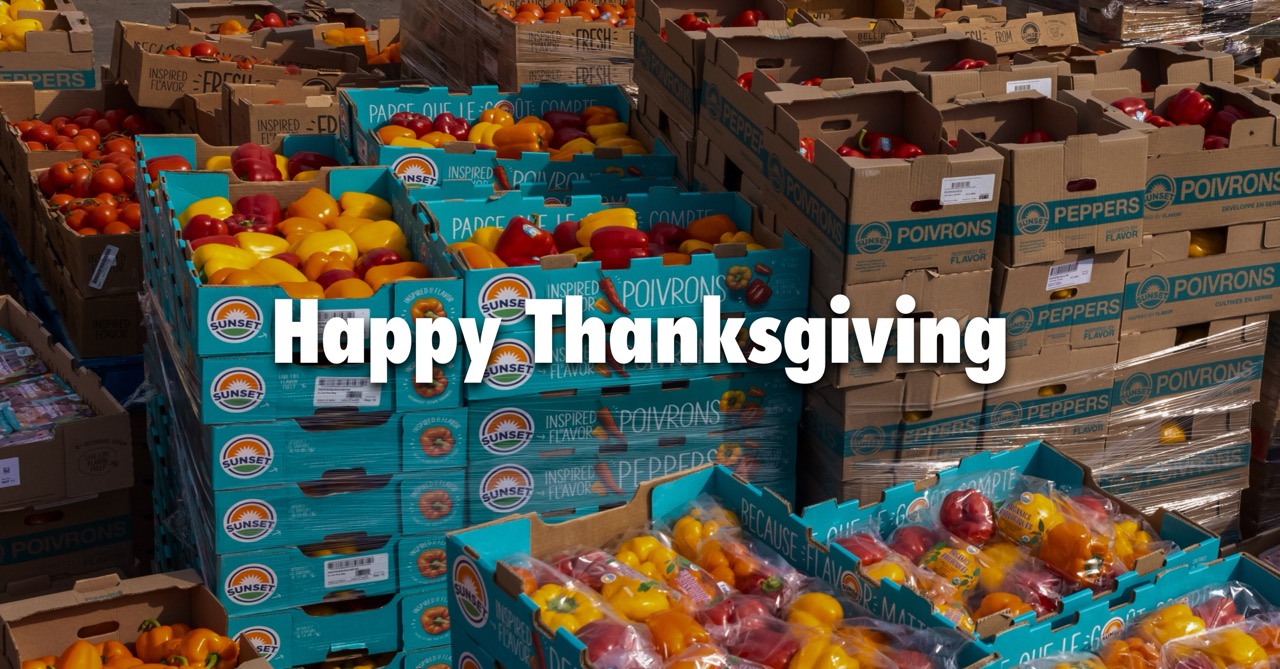
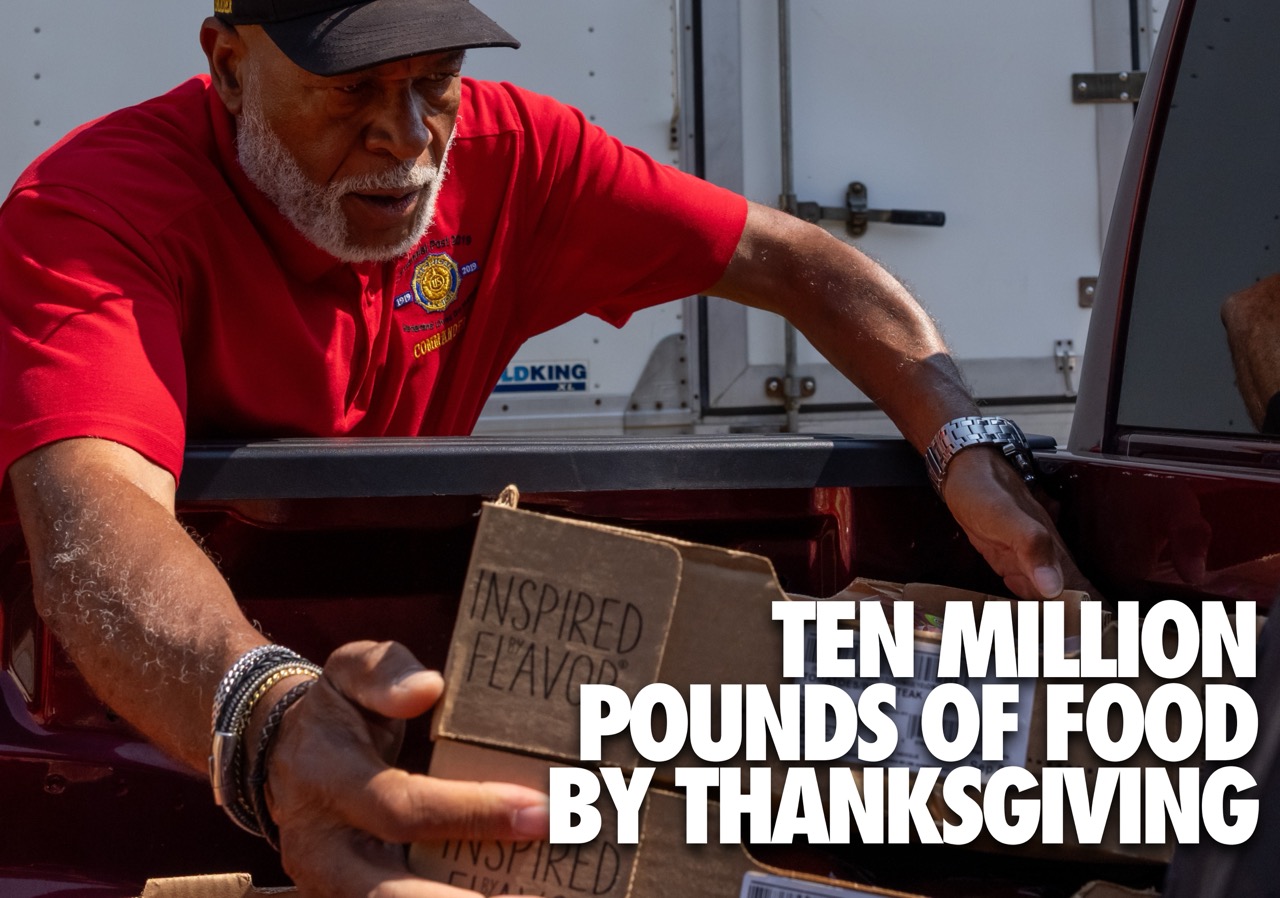
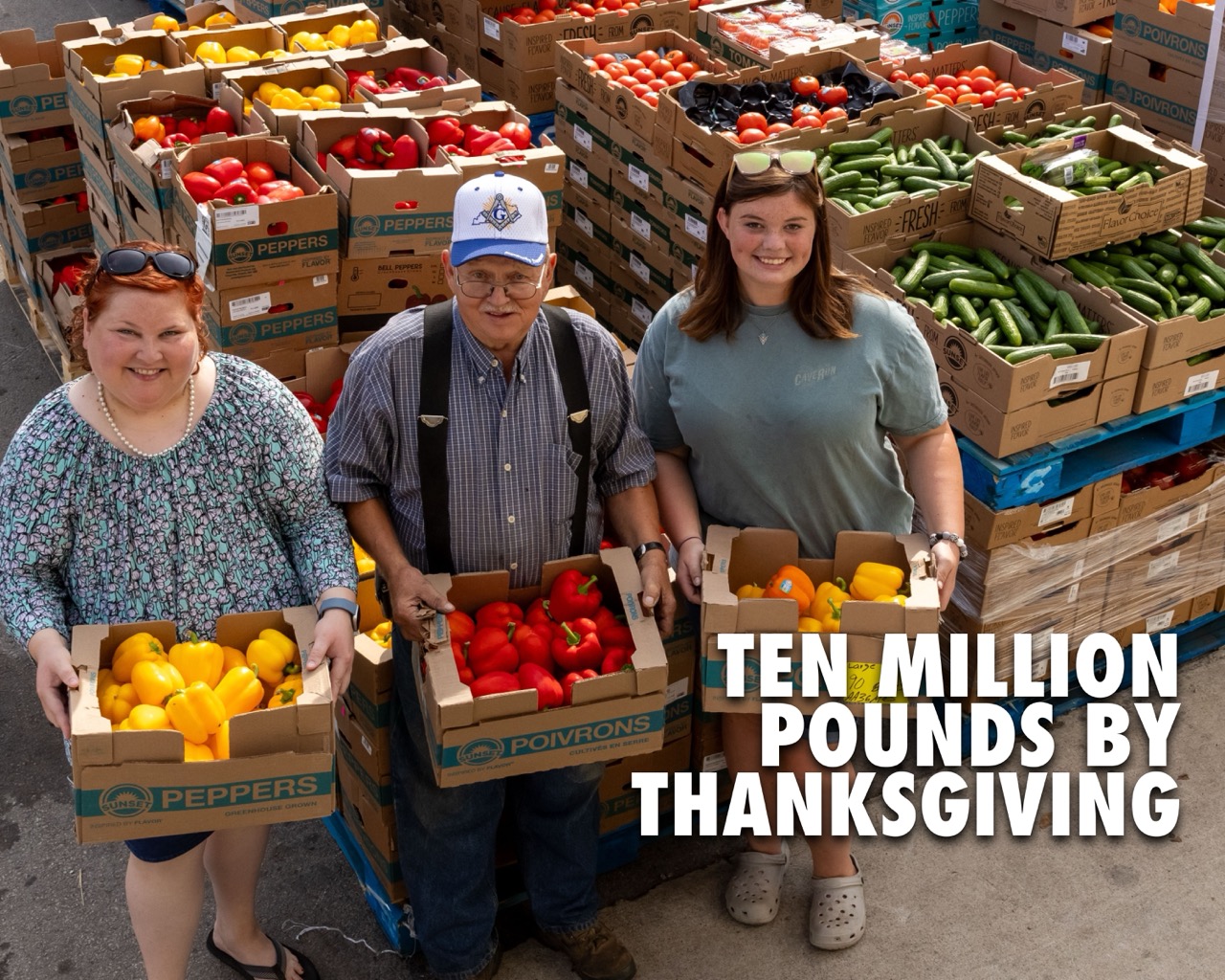
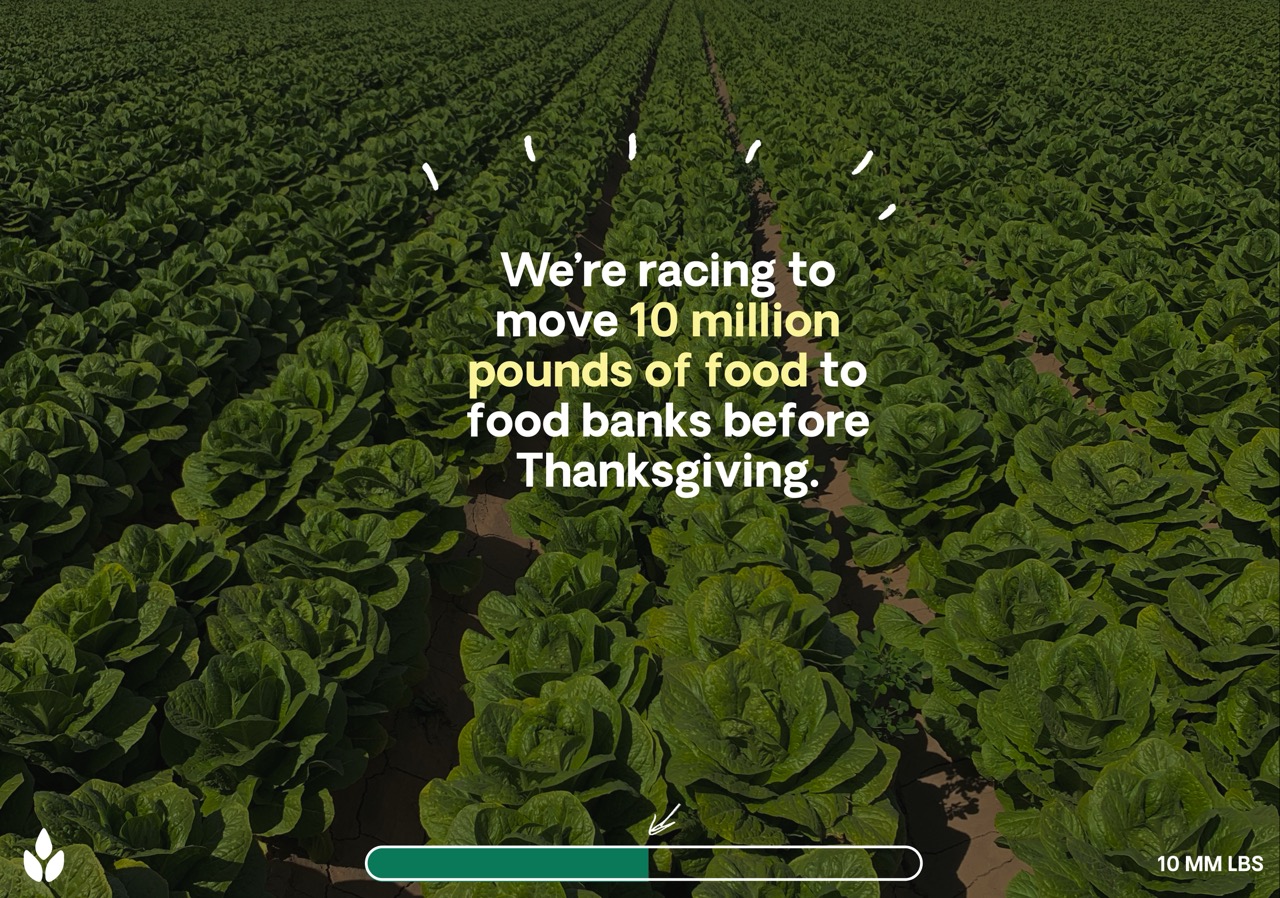
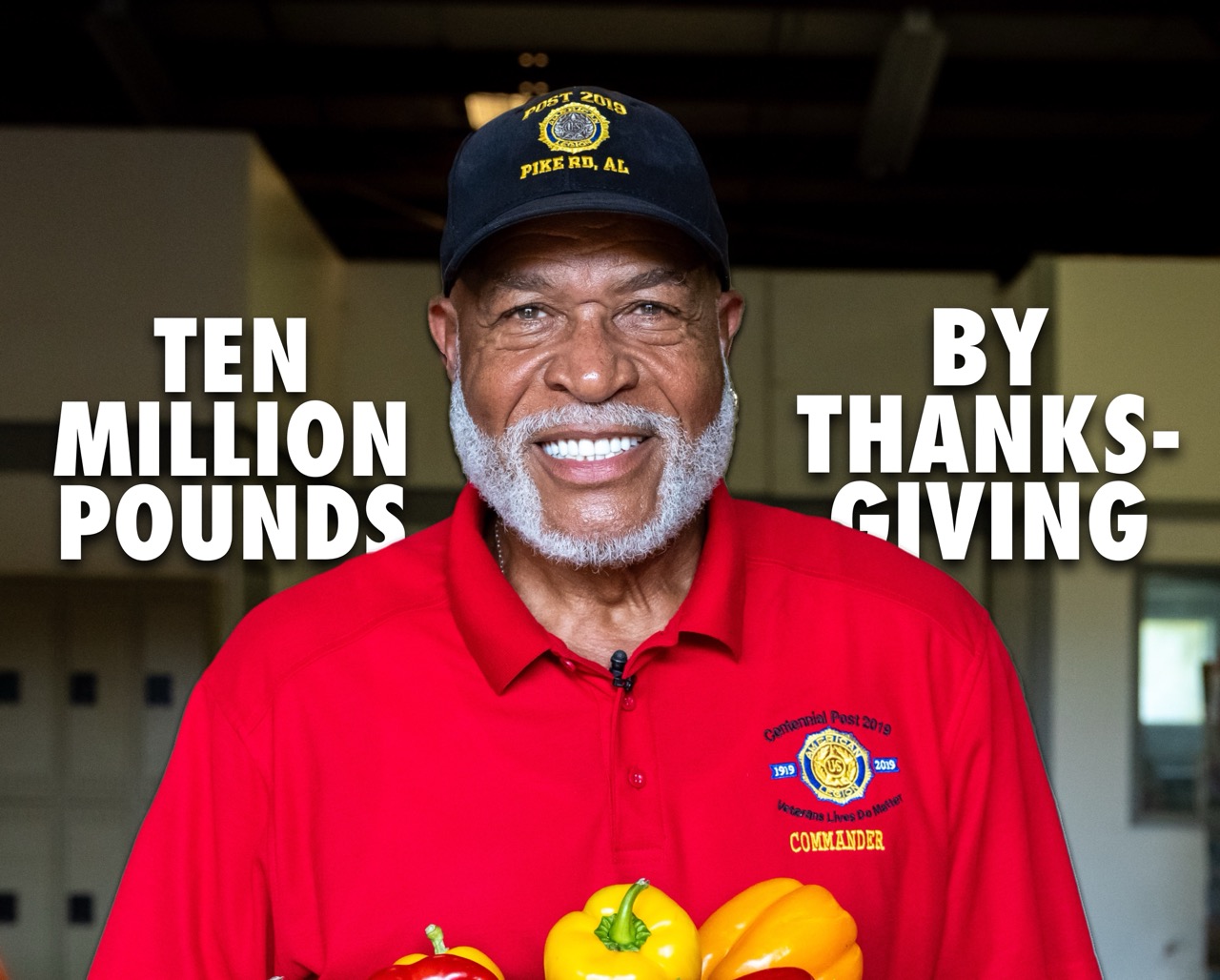
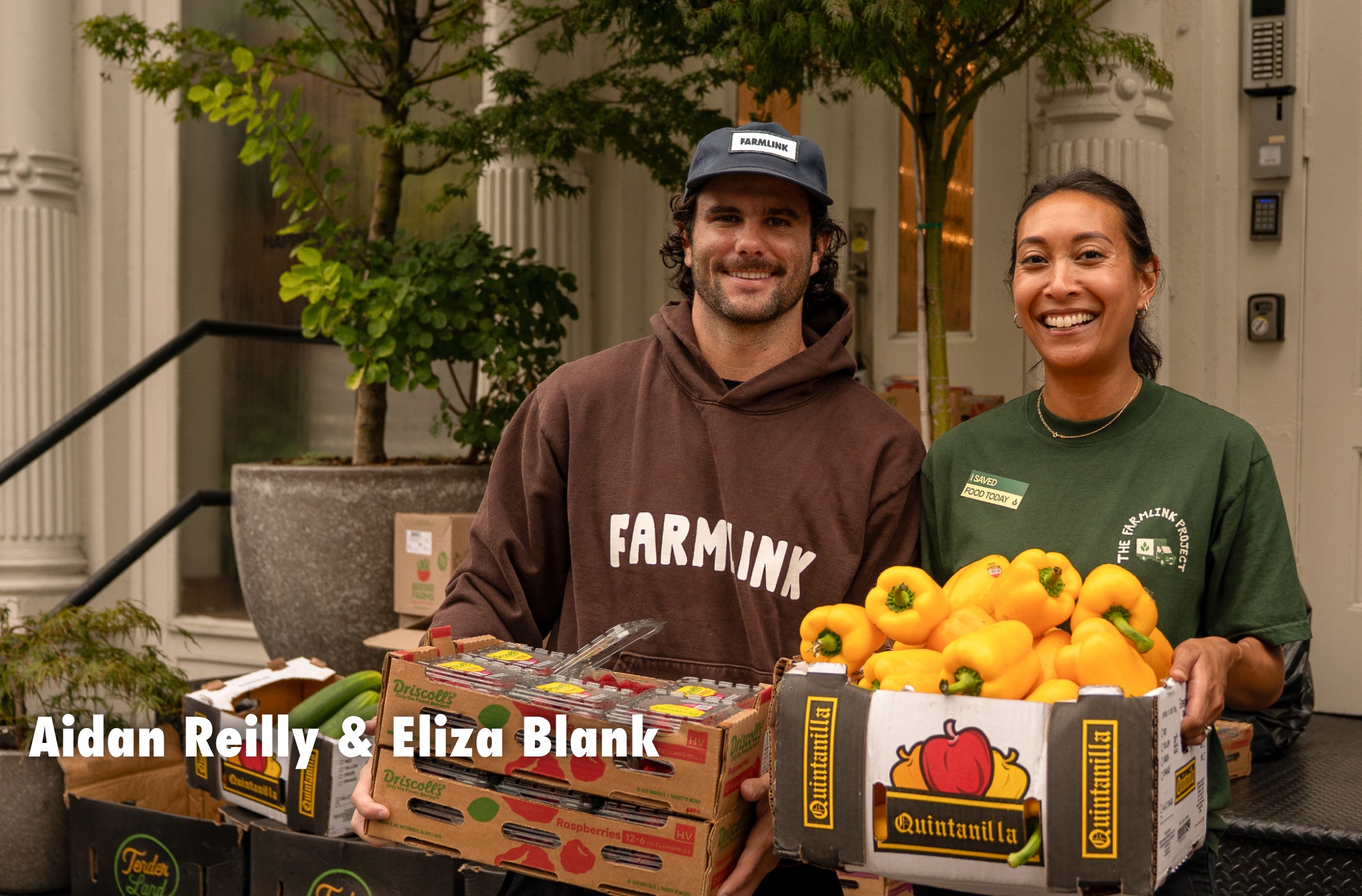
.svg)
.svg)
.svg)